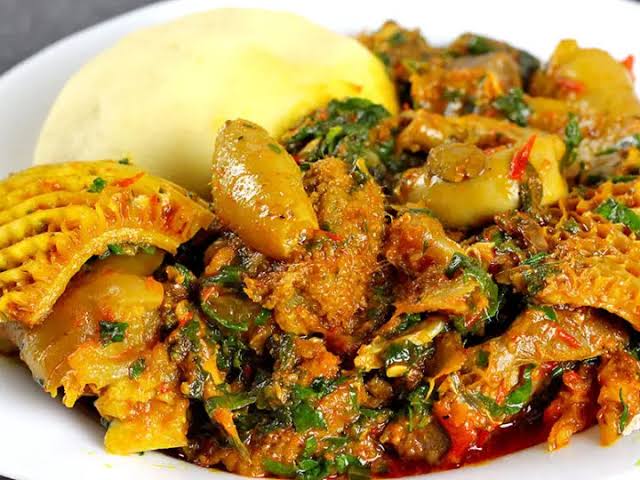Maintaining a healthy and balanced diet is crucial for managing diabetes. For diabetic patients in Nigeria, it is important to have a well-planned food timetable that takes into account their specific dietary needs. In this article, we will explore what diabetes is, the different types of diabetes, and provide a comprehensive timetable for breakfast, lunch, and dinner for each day of the week. We will also highlight local Nigerian foods and soups that are beneficial for diabetics, ensuring that patients have delicious and nutritious options.
What is Diabetes?
Diabetes is a chronic health condition characterized by high blood sugar levels. It occurs when the body either does not produce enough insulin (a hormone that regulates blood sugar) or cannot effectively use the insulin it produces. There are two main types of diabetes:
- Type 1 Diabetes: This type occurs when the body does not produce insulin at all. It is typically diagnosed in childhood or adolescence and requires lifelong insulin therapy.
- Type 2 Diabetes: This type occurs when the body does not effectively use insulin or does not produce enough insulin to regulate blood sugar levels. It is more common in adults and is often associated with lifestyle factors such as poor diet and lack of physical activity.
Nigerian Foods and Soups Good for Diabetics:
Nigeria is known for its rich culinary heritage, and there are several local foods and soups that are beneficial for diabetics. Incorporating these into a diabetic-friendly diet can provide both health benefits and a taste of Nigerian cuisine. Here are some examples:
- Foods:
- Brown rice: This whole grain alternative to white rice is rich in fiber and has a lower glycemic index, making it a better choice for diabetics.
- Moi moi (bean pudding): Made from beans, moi moi is a protein-rich dish that is low in carbohydrates and suitable for diabetics.
- Okra: This vegetable is low in calories and high in fiber, helping to regulate blood sugar levels. Okra soup is a popular Nigerian dish that diabetics can enjoy.
- Efo riro (vegetable soup): Packed with nutrient-rich vegetables such as spinach and bell peppers, efo riro is a delicious and healthy option for diabetic patients.
- Soups:
- Ogbono soup: Made from ground ogbono seeds, this soup is rich in healthy fats and contains soluble fiber, which can slow down the absorption of carbohydrates and regulate blood sugar levels.
- Ewedu soup: This traditional Nigerian soup is made from jute leaves and is low in calories, making it suitable for diabetics. It is often served with a protein-rich dish like grilled fish or chicken.
- Vegetable soup: A combination of various vegetables such as spinach, bitter leaf, and pumpkin leaves, vegetable soup is a nutritious option for diabetics. It can be paired with whole wheat swallow for a balanced meal.
Nigeria Food Timetable for Diabetic Patients:
The following table provides a sample food timetable for diabetic patients in Nigeria, focusing on breakfast, lunch, and dinner for each day of the week. It incorporates the local foods and soups mentioned above:
| Day | Breakfast | Lunch | Dinner |
|---|---|---|---|
| Sunday | Oatmeal with fruits | Okra soup with fish and whole wheat swallow | Grilled chicken with efo riro (vegetable soup) |
| Monday | Boiled eggs with vegetables | Brown rice with moi moi (bean pudding) | Ogbono soup with grilled fish |
| Tuesday | Akara (bean cakes) with vegetable salad | Ewedu soup with grilled chicken | Vegetable stir-fry with whole wheat swallow |
| Wednesday | Pap (ogi) with groundnut and banana | Grilled turkey breast with vegetable soup | Brown rice with spinach stew |
| Thursday | Vegetable omelette with whole wheat bread | Moi moi (bean pudding) with vegetable salad | Egusi soup with grilled fish |
| Friday | Plantain porridge with fish | Vegetable stir-fry with chicken | Okra soup with grilled turkey breast |
| Saturday | Greek yogurt with berries and nuts | Brown rice with efo riro (vegetable soup) | Grilled fish with vegetable stir-fry |
Please note that this is just a sample timetable and can be customized based on personal preferences and dietary requirements. It is recommended to consult with a registered dietitian or healthcare professional to create a personalized food timetable that suits your individual needs and includes other local Nigerian foods and soups that are beneficial for diabetics.
Conclusion:
Managing diabetes requires a holistic approach, with nutrition playing a key role. By following a well-planned food timetable that incorporates diabetic-friendly local Nigerian foods and soups, individuals can effectively manage their blood sugar levels while enjoying the flavors of their culture. Remember to consult with a registered dietitian or healthcare professional to personalize your food timetable according to your specific needs. With proper guidance and adherence to a balanced diet, diabetic patients can lead a healthy and fulfilling life, savoring the delicious and nutritious meals that Nigeria has to offer.
